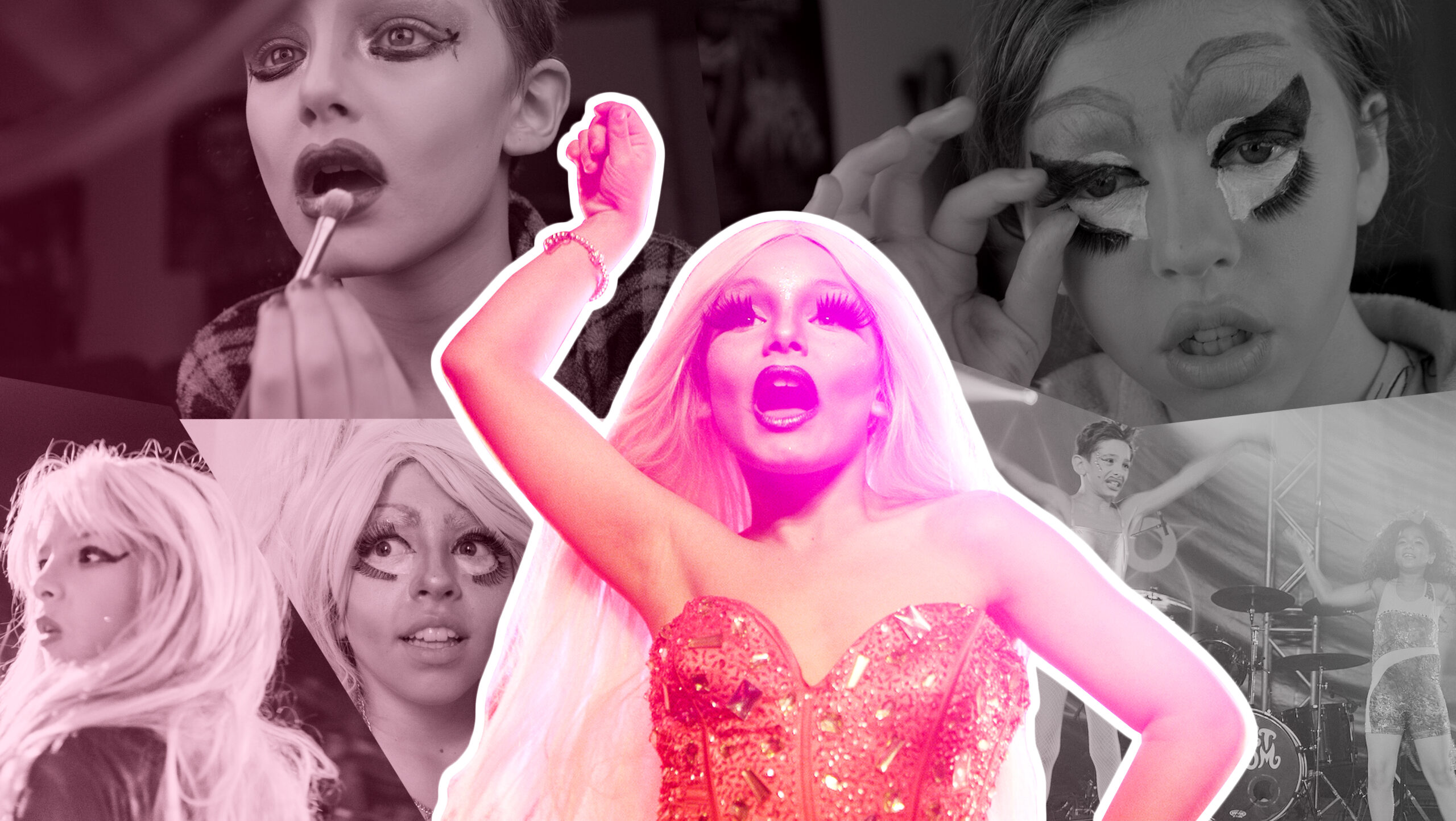Here’s the tea: People like to throw criticisms at things that sparkle.
After the Canadian Broadcasting Corporation (CBC) announced it would air the documentary Drag Kids, which follows four budding drag stars under 13-years-old, the public reaction was swift and ugly. Some alleged that the CBC “supports child exploitation” and should be defunded, while others directed extreme hatred towards the kids’ parents, accusing them of “child abuse.”
The fact that Drag Kids aims to show what love, compassion and support look like has nearly been drowned out by this sea of negativity. But at its core, the documentary tells the story of families — the ones we’re born into and the ones we chose — and what happens when a child is nurtured with unconditional love and acceptance.
The Canadian film features a quartet of 10- and 12-year-olds from around the world: Bracken, aka Bracken Gvasalia; Jason, aka Suzan Bee Anthony; Nemis, aka Queen Lactatia; and Stephan, aka Laddy Gaga. The documentary follows the kids as they meet like-minded peers for a group performance at Fierté Montréal Pride. It premiered to critical acclaim earlier this year at the Hot Docs Canadian International Documentary Festival in Toronto, and is scheduled to air on CBC Docs POV on July 25.
Megan Wennberg, the director of Drag Kids, says she and her team were aware of the hate even before they started filming. Both the kids and their parents have told her they’ve received online hate and experienced trolling, while horrible articles have also been published about some of the children and their parents. The hate amplified when the film made it rounds at film festivals, and has persisted now with the scheduled televised public broadcast.
“I don’t understand the mentality of being really angry and judgmental about something without ever understanding it, that kind of contempt without investigation,” Wennberg says.
“It seems what’s happening is people are seeing an image of a boy in a dress and just freaking out and I’m not sure why that scares them or why that’s pushing their buttons but maybe that’s something they should look at rather than just leaving a bunch of hateful homophobic crap online.”
Wennberg says she’s checked-in with the families and they’ve told her this kind of hate is “unfortunately not new” for them. “They just don’t read the ugly comments. They don’t expose their kids to narrow-minded, biased views,” she says.
In an interview with the CBC, Jessica Melancorn, Nemis’ mother, said, “A lot of people talk about how much our kids are being abused. And the truth is, they are being abused — but it’s not by us.”
In the same interview, many of the parents featured in the film said their children are victims of online haters who use slurs commonly used against the LGBTQ2 community and sex workers. However, it doesn’t stop there; the hate continues to permeate offline.
According to Stephan’s mom, Gabrielle Hirst, her son was heckled while singing karaoke at a bar and later approached by a stranger who “Put [her] hands on Stephan’s shoulder and said, ‘You know what your mum’s doing to you is abuse, don’t you?’”
Dominique Hanke, Bracken’s mother, says people tell her and the other parents that they should forbid their children from performing drag, alleging that it’s unhealthy for the kids. However, Hanke says restricting their children is what would actually harm their mental health.
The parents say they put an effort into filtering comments and try their best to shield the kids from seeing the full extent of hate — for them, the focus is on providing their kids with a loving and compassionate environment..
https://twitter.com/CBCKidsNews/status/1146820535931822090?ref_src=twsrc%5Etfw%7Ctwcamp%5Etweetembed%7Ctwterm%5E1147140621351686150&ref_url=https%3A%2F%2Fwww.thepostmillennial.com%2Fwhy-does-the-cbc-keep-pushing-drag-kids%2F
In a promotional video by the CBC, Bracken, a hyper-queen (a female drag performer), says, “Drag has helped me express myself in a way that I’m not able to in everyday life, [it helps me as I] walk my way down the road of self discovery and figure out who I am as a person and it’s helped me connect with people in the community.”
Despite their experiences, the childrens’ parents say they receive more love than hate. While looking for families and kids to feature in the film, Wennberg says Jessica Melancorn helped connect her and her crew to other kids who perform drag, as well as their families — a community that assures children it’s okay to stand up and express themselves. These families bonded during and after filming the documentary.
“We’re a crew now,” Melancon tells the CBC.
Wennberg says the kids know themselves and have an amazing sense of self-confidence that a lot of adults don’t.
“These are kids that are able to be brave and are supported to be brave by their parents and it’s a pretty amazing thing to see,” she says. “I just wish people could watch the film and see that, because ultimately it’s about four kids who have that shared passion, who have all been isolated because of their interest, finally coming together and meeting community through something they love.”
Wennberg says she hopes people will see the film and realize that it’s okay to take risks and it’s okay to be themselves — and maybe, like the drag kids, people can find community.


 Why you can trust Xtra
Why you can trust Xtra


